Marcia Sirota's Blog, page 8
March 21, 2022
6 Tips for Supercharging Your Friendships Post-Pandemic
Now that spring has arrived and the COVID restrictions are being lifted, many of us are emerging from our two-year hibernation and we’re eager to reconnect our friendships. Over the past two years, whether we’re single or married, we’ve really missed hanging out with our buddies and we’re so excited to spend time in-person with them.
Another consequence of the pandemic is that many of us have let go of certain friendships after we discovered disappointing and even shocking things about our friends. We’ve dropped those whose views about the pandemic, vaccines, and COVID restrictions are vastly different from our own, or whose opinions are informed by conspiracy theories as opposed to factual evidence.
The May 2021 American Perspectives Survey found that Americans report having fewer close friendships than they did pre-pandemic. They report talking to their friends less often and relying less on their friends for personal support.
We’ve walked away from people whose behaviour during the pandemic has distressed and appalled us. It’s left us somewhat leery about making new friends because we don’t want to repeat the mistakes of the past. So, how do we go about making new friends who are going to be the right kind of friends, and how do we make our current friendships better?
 Source: Pexels.comGood friendships should always make you happier and more confident
Source: Pexels.comGood friendships should always make you happier and more confidentIt doesn’t hurt to remember some basics about what a good friendship should include. In a good friendship, both people should genuinely care about and support each other. The relationship should be reciprocal, with both parties doing equal amounts of giving and receiving. There should be love and acceptance, without any tolerance of unacceptable behaviour.
You should share similar values and enjoy similar activities. You should listen to one-another and treat one-other with kindness and generosity. A good friend should make you happy and relaxed and should always make you feel good about yourself. Your life should be better for having this person in it. If all these things aren’t present, you’ll need to rethink the friendship.
No-one ever teaches us how to create and maintain friendships, so we don’t know what to do when problems arise. We second-guess ourselves and rationalize behaviours that make us unhappy because we aren’t sure if we’re being too fussy or if our dissatisfaction with the friendship is valid. Sometimes we think that we might have done something to deserve the bad behaviour on the part of our friends. (Of course, we didn’t.)
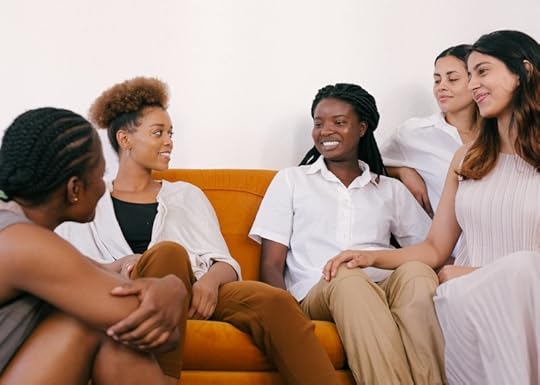 Source: Pexels.comMy philosophy of Ruthless Compassion offers six tips for supercharging your friendships
Source: Pexels.comMy philosophy of Ruthless Compassion offers six tips for supercharging your friendships1. Know the difference between a preference and a deal-breaker.
In every friendship, whether established or brand-new, there will be one or two things about your friend that you’re not crazy about. You need to decide if these are things you don’t necessarily like but you can live with, or if these are things that you absolutely can’t tolerate. We’re all imperfect and part of a good friendship is accepting one-another, including our flaws. However, we shouldn’t have to put up with anything that really bothers us. If there are deal-breakers in the friendship, feel free to end it and move on. Otherwise, you’ll never be fully comfortable or happy with this person.
2. Know the difference between an honest mistake and willful insensitivity. Sometimes our friends mess up, but they shouldn’t have free rein to constantly hurt us or mistreat us. It’s fine to forgive the occasional instance of not-so-cool behaviour. After all, everyone can have a bad day and say or do something stupid. But, there’s a real difference between a friend putting their foot in their mouth on rare occasions and this person regularly treating us badly. Willful insensitivity is when someone never bothers to consider the impact of their actions on you and they keep doing things that hurt you. That’s simply not okay.
3. Stop justifying unacceptable behaviour. If your friend is rude, insulting, contemptuous, dismissive, neglectful, undermining, selfish, insensitive, threatening, crazy-making, competitive in a hurtful way, insulting, excluding, mocking, or punitive, it is never okay. If someone is angry at you over something you’ve done, that’s not an excuse to mistreat you—it’s an opportunity for healthy (and polite) confrontation. Know that there’s nothing that you could do that would ever justify your friend mistreating you. If you’ve done something really awful, your friend can talk to you about it or they can choose to walk away. There’s no justification for them mistreating you, ever. Period.
4. Stop tolerating frenemies. Some friends always have to be right, on top, the best, or the most popular. These are insecure individuals who see your friendships as a competition that they have to win. They constantly need to one-up you or prove that they’re the most intelligent, knowledgeable, attractive, successful, or well-to-do. In a crowd, they demand all the attention, leaving you with none of it. They pretend to support you but their supposedly helpful remarks are really just veiled insults. They ruin your self-confidence and actively interfere with your joy and success. They get angry if you do well in any way. Rather than being happy for you and proud of you, they resent your accomplishments. These are frenemies, not friends. Run, do not walk, away from them.
5. Stop tolerating unreasonable behaviour. Our friends should be easy to be around and should improve the quality of our lives, but unreasonable people always make things harder for us. They’re difficult, overly-touchy, insanely particular, inflexible, and overly demanding. They suck our energy. They’re frustrating and exasperating. And they’re like this with everyone, making us cringe and feel embarrassed for being their friend. They won’t listen to reason and they’re defensive during disagreements. They refuse to compromise and make you feel guilty for setting limits or asking to have your needs met. You deserve so much better. Walk away.
6. Know the difference between disagreement and disrespect. In our friendships, there will be times when we disagree. As long as it’s not verging into deal-breaker territory, that’s fine, and we can agree to disagree. What’s not okay is when the friend tries to coerce you into adopting their point of view, or when they insult you for seeing things your way. We can have different types of friends with different views on things. As long as everyone is respectful and tolerant of one-another, friendships can be positive but beware if your friend is belittling you over your opinions, publicly criticizing you for them, or deliberately working against you. Respect and tolerance are essential aspects of a positive friendship and if they’re not present, the friendship is not a healthy one.
Ruthless Compassion is about seeing the truth about yourself, others, and the world and making reality-informed choices. It’s about being kind to yourself and to others, and never tolerating or justifying mistreatment. When you adopt these 6 tips informed by the philosophy of Ruthless Compassion, your friendships will thrive.
______
Sign up here for my free biweekly wellness newsletter that brings you fresh, thought-provoking content.
Subscribe to my YouTube Channel where you’ll learn simple tips for taking the best care of yourself and your loved ones.
Tune in to my Ruthless Compassion Podcast where I go in-depth about topics like mental health, trauma, and loneliness.
if(window.strchfSettings === undefined) window.strchfSettings = {};window.strchfSettings.stats = {url: "https://marciasirotamd.storychief.io/... "6 Tips for Supercharging Your Friendships Post-Pandemic",id: "84fb0907-fb13-4676-8158-d29510e9b589"};(function(d, s, id) {var js, sjs = d.getElementsByTagName(s)[0];if (d.getElementById(id)) {window.strchf.update(); return;}js = d.createElement(s); js.id = id;js.src = "https://d37oebn0w9ir6a.cloudfront.net... = true;sjs.parentNode.insertBefore(js, sjs);}(document, 'script', 'storychief-jssdk'))
The post 6 Tips for Supercharging Your Friendships Post-Pandemic appeared first on Marcia Sirota.
March 14, 2022
How Doomscrolling the Ukrainian Invasion May Cause Vicarious Trauma
The whole world is watching as Putin continues his unprecedented assault on Ukraine. It’s a horrifying situation for the people of that country and for their friends and family abroad. Outside of Russia and Ukraine, Canada is home to the largest Ukrainian community in the world. It’s heart-breaking and worrisome for Canadians who are watching the events unfold.
The trauma to the population of Ukraine will linger on for decades after this invasion— that’s clear. My heart goes out to the children, especially. But the Ukrainian people aren’t the only ones affected by this nightmare. It also has an impact on those of us who are following the coverage of the invasion.
How badly the news is affecting us depends in part on how closely we’re following the stories and on where we’re getting our information from. These days, with so many available sources of information online, we have access to immediate, unfiltered images of the invasion of Ukraine. Many of these images are deeply disturbing and they’re having a powerful effect on the viewers.
 Source: Pexels.comWe can experience vicarious trauma by watching graphic images of the siege of Ukraine
Source: Pexels.comWe can experience vicarious trauma by watching graphic images of the siege of UkrainePeople can be traumatized both directly and indirectly. We can develop PTSD symptoms by having a direct experience of war—like what the Ukrainian people are experiencing right now—but we can also develop stress symptoms by viewing disturbing images of the conflict. It’s called vicarious trauma. The brain reacts as though the things we’re seeing are actually happening to us.
Many people have been losing sleep at night after viewing graphic images of the war online. They want to do something positive for the people of Ukraine, but watching the coverage is making them more distracted and forgetful. They’re moody and short-tempered. They’re anxious and weepy.
It’s important to stay informed so that we can help the Ukrainian people in whatever way we can, but we don’t have to cause ourselves psychological harm by repeatedly viewing images that are so distressing. It’s all about finding a balance.
 Photographer: Daria Nepriakhina | Source: UnsplashWe need to avoid doomscrolling
Photographer: Daria Nepriakhina | Source: UnsplashWe need to avoid doomscrollingDoomscrolling is the act of obsessively checking media outlets and exposing ourselves to an excessive amount of negative news. In a recent article in Psychology Today, the author, Joe Pierre, warns against doomscrolling and advises us that while it’s important to know the facts about what’s going on in Ukraine, too much graphic content can be overwhelming. We can become incapacitated and unable to offer any help at all.
An article in Time Magazine describes the mental health impact of watching a war online, saying that while traditional news outlets tend to edit the content that they consider too graphic to show, online media has no such filter, resulting in potential harm to the viewer’s emotional well-being.
 Photographer: Filip Mishevski | Source: UnsplashWe need to avoid misinformation
Photographer: Filip Mishevski | Source: UnsplashWe need to avoid misinformationBoth articles mention the risk of misinformation, describing how online media has no fact-checkers and often can be quite biased. There’s a danger to our mental health when we consume inflammatory misinformation.
It’s important to keep informed but it’s equally important to determine which sources of information are reliable and which are spouting baseless opinions—those which can cause us undue mental stress.
 Source: Pexels.comWe can identify our own personal warning signs of stress
Source: Pexels.comWe can identify our own personal warning signs of stressAn article by Amnesty International describes how we can identify our own personal warning signs that we’ve been taking in too much disturbing content. For me, I know that it’s too much when I start being even more absent-minded than usual. For someone else, it might be binge eating or drinking to excess.
If we notice when we’re getting overloaded and upset, we can step away for a while and choose to focus on something less distressing. I, personally, like to watch baking shows.
All of the above articles warn about the dangers of being in denial, saying that avoiding any mention of upsetting news is equally problematic as it makes us helpless in the face of dangerous world events. Awareness equals empowerment. However, occasionally stepping away from coverage of the war is not about denial. It’s about self-care.
 Photographer: Jeffrey Grospe | Source: UnsplashWe can cut down on the amount of distressing content coming in
Photographer: Jeffrey Grospe | Source: UnsplashWe can cut down on the amount of distressing content coming inThe Amnesty International article suggests using social media tools to cut down on the distressing content coming in. You can turn off auto-play, cover certain images with your hand, turn off the volume in some videos or deactivate auto-download on WhatsApp. All of these things can spare you from ingesting too much upsetting content.
There are many ways to take a break from the news. You don’t have to turn on baking shows like I do, but you can find other activities that can help you to relax and decompress when coverage of the war is stressing you out. I also like to play with my cats, go for walks, work on my novel and spend time with my loved ones. Everyone needs positive activities to balance out the bad news assaulting us these days.
 Source: Pexels.comThere is a real mental health risk to watching coverage of the Ukrainian war
Source: Pexels.comThere is a real mental health risk to watching coverage of the Ukrainian warWithout in any way minimizing the horrors that the people of Ukraine are facing right now, I wanted to point out that there’s a mental health risk to those of us watching coverage of the war.
We Canadians are lucky that we’re still living in relative peace and prosperity. As a result, we might be tempted to downplay the vicarious trauma of watching the siege of Ukraine online. But ignoring our mental health turns us into the walking wounded.
As long as we make sure to find a balance between being informed and protecting our psyche, and as long as we seek out reputable, reliable sources of information, we can maximize our ability to help those in need while still protecting our psychological well-being.
______
Sign up here for my free biweekly wellness newsletter that brings you fresh, thought-provoking content.
Subscribe to my YouTube Channel where you’ll learn simple tips for taking the best care of yourself and your loved ones.
Tune in to my Ruthless Compassion Podcast where I go in-depth about topics like mental health, trauma, and loneliness.
if(window.strchfSettings === undefined) window.strchfSettings = {};window.strchfSettings.stats = {url: "https://marciasirotamd.storychief.io/... "How Doomscrolling the Ukrainian Invasion May Cause Vicarious Trauma",id: "84fb0907-fb13-4676-8158-d29510e9b589"};(function(d, s, id) {var js, sjs = d.getElementsByTagName(s)[0];if (d.getElementById(id)) {window.strchf.update(); return;}js = d.createElement(s); js.id = id;js.src = "https://d37oebn0w9ir6a.cloudfront.net... = true;sjs.parentNode.insertBefore(js, sjs);}(document, 'script', 'storychief-jssdk'))
The post How Doomscrolling the Ukrainian Invasion May Cause Vicarious Trauma appeared first on Marcia Sirota.
March 7, 2022
On International Women’s Day, Improve Your Self-Esteem by Correcting These Four Mistakes
As International Women’s Day 2022 approaches, I’ve been thinking about what to write to mark this important occasion. We’re living in such dark times that I didn’t want to write a blog outlining all the challenges women face these days. The challenges are real, but today I want to focus on solutions.
As IWD arrives, I’m thinking about how women can have greater self-esteem. I think that as women, we make four fundamental mistakes that prevent us from having good self-esteem:
1. We’re too attached to the male gaze and too fearful of being intimidating to a man.
2. We go after the superficial when we need to pursue the meaningful.
3. We’re too caught up in perfectionism.
4. We try too hard to please, instead of choosing to be kind.
 Photographer: Carlos Martinez | Source: UnsplashIn 2022, we need to stop pandering to the male gaze
Photographer: Carlos Martinez | Source: UnsplashIn 2022, we need to stop pandering to the male gazeOne of the things I’ve been noticing for a long time is how women continue to pander to the male gaze, as though we’re convinced that our value depends on whether or not men find us attractive.
I watch movie premieres and see women wearing skimpy dresses and stiletto heels, freezing in the cold night air, while the men next to them are in sports jackets, long trousers, and comfortable shoes. The women are trying to look cute and sexy, while the men are dressing to be presentable, but comfortable. It would be different if everyone’s goal was to be cute and sexy, but it’s almost always just the women.
It makes me sad that after everything women have accomplished over the years, we’re still worrying about whether a man will find us desirable. I have nothing against being cute or sexy—I just don’t think our value should hinge on these things alone. I think that a woman’s self-worth should come from a lot more than her appearance. It should come from a foundation of self-acceptance and self-love.
A woman should feel good about herself because she’s smart, curious, passionate, ambitious. She should be proud of her accomplishments, her career, her family. A woman should love herself because of who she is and what she does; not because some man finds her attractive.
 Source: Pexels.comOur confidence needs to come from a real place
Source: Pexels.comOur confidence needs to come from a real placeLife is more challenging than ever. Our stress is at an all-time high. As women, we need more confidence, coming from a real place. Sure, we could pose for some vapid bikini shots, but what does that mean? Anyone with enough money can afford the requisite plastic surgery to look good in one of those photos—or they can get the images photoshopped to make themselves look amazing.
Unfortunately, the emphasis on the superficial is deeply unfulfilling and will leave you feeling empty, because it has nothing to do with the real you. Also, it won’t boost your self-esteem because, in this Insta-world, there will always be another woman who looks better in her bikini than you do. Comparing yourself to others is not the way to build up your confidence.
With all the problems we’re facing these days, we need more than ever to reject the superficial and look to the meaningful. One of the best ways a woman can boost her self-esteem is by contributing to society. This can be through social activism, volunteer work, contributing to a charity, or making art that speaks out against corruption and injustice.
Another way to improve your self-worth is to throw yourself into a passion project. It can be any type of endeavor, be it athletic, creative, professional, educational, spiritual, or personal. Working hard on something you’re passionate about is as deeply fulfilling as posing for Insta-stories is not. And the sense of accomplishment you’ll have when you arrive at your goal will be amazing.
Some women are afraid to call attention to their intelligence and accomplishments for fear of coming across as intimidating to men, but any man who can’t handle your greatness really doesn’t deserve you.
 Source: Pexels.comWe’re way too demanding toward ourselves, but let others off the hook
Source: Pexels.comWe’re way too demanding toward ourselves, but let others off the hookOne of the mistakes women make is that we’re too hard on ourselves. To have better self-esteem, we need to let go of perfectionism and recognize that we’re always growing and learning. It should be enough to be doing our best. We’re willing to cut everyone else some slack, so why not ourselves?
Some women get their self-esteem from being nice and pleasing to others. They give and give and are exploited by family, friends, romantic partners, bosses, and colleagues. They believe that being a people-pleaser is the same as being a kind person, but they’re wrong.
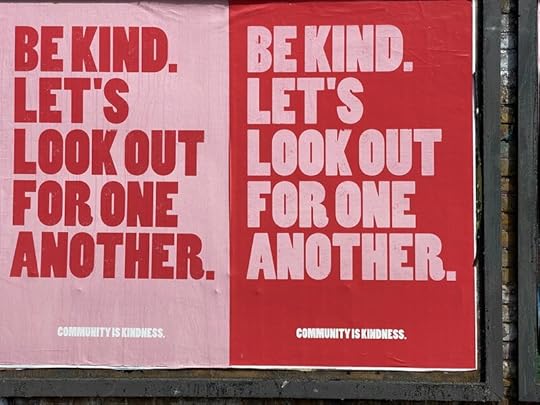 Photographer: John Cameron | Source: UnsplashWe need to switch out being too nice for being truly kind
Photographer: John Cameron | Source: UnsplashWe need to switch out being too nice for being truly kindBeing a people-pleaser is about doing everything for everyone and nothing for yourself, in the hopes that others will like you and that this will boost your self-esteem. Being kind is acting from a deep compassion for others, but also having good boundaries. It’s knowing when to say “no,” and when to set limits on other people’s behaviour.
The people-pleaser is exploited and disrespected and is never there for herself. Her self-esteem doesn’t improve because she’s not being authentic in ingratiating herself to everyone. She knows that any positive responses to her actions are not for her genuine self. She also feels a bit humiliated, deep down, for being such a doormat.
The kind person is as loving to herself as she is to everyone else. She feels good about herself for behaving compassionately toward others, and she feels uplifted and empowered for taking care of herself in her dealings with others.
 Source: Pexels.comTo sum it up, there are four mistakes women must correct in order to improve their self-esteem:
Source: Pexels.comTo sum it up, there are four mistakes women must correct in order to improve their self-esteem:1. Stop being so invested in the male gaze. Be cute or sexy if it makes you happy, but not to get a man to validate your worth. And never hide your light under a bushel.
2. Contribute to society and/or invest in a passion project. Seek meaningful activities and accomplishments, as opposed to empty, superficial pursuits.
3. Let go of perfectionism and know that doing your best is always good enough.
4. Be kind, but not a people-pleaser. Share your compassion with the world, but never be a doormat.
In 2022, women need to give up these four bad habits. Great self-esteem is available to all of us, right now. What are you waiting for?
______
Sign up here for my free biweekly wellness newsletter that brings you fresh, thought-provoking content.
Subscribe to my YouTube Channel where you’ll learn simple tips for taking the best care of yourself and your loved ones.
Tune in to my Ruthless Compassion Podcast where I go in-depth about topics like mental health, trauma, and loneliness.
if(window.strchfSettings === undefined) window.strchfSettings = {};window.strchfSettings.stats = {url: "https://marciasirotamd.storychief.io/... "On International Women’s Day, Improve Your Self-Esteem by Correcting These Four Mistakes",id: "84fb0907-fb13-4676-8158-d29510e9b589"};(function(d, s, id) {var js, sjs = d.getElementsByTagName(s)[0];if (d.getElementById(id)) {window.strchf.update(); return;}js = d.createElement(s); js.id = id;js.src = "https://d37oebn0w9ir6a.cloudfront.net... = true;sjs.parentNode.insertBefore(js, sjs);}(document, 'script', 'storychief-jssdk'))
The post On International Women’s Day, Improve Your Self-Esteem by Correcting These Four Mistakes appeared first on Marcia Sirota.
February 28, 2022
How Gen Z Can Cope with Today’s Crazy, Unrelenting Stress
After two years of a global pandemic, we didn’t think that the world could get any darker, but now Russia has gone and invaded Ukraine. This is horrendous for Ukrainians, in and outside the country and it’s terrifying for everyone else, as we hear Putin threatening nuclear retaliation toward anyone who intervenes.
I was asking a young person what was the number one current event this week and he answered, “World War Three?” It broke my heart that someone in his twenties has to contend with such harsh realities.
As world leaders scramble for a diplomatic solution, Ukraine fights valiantly and the rest of us wait, holding our collective breath, as terrible events unfold. We hear stories of incredible courage and resilience from the Ukrainian people. We hope for the best for them, but we fear the worst for all of us. These are indeed, the darkest of times.
 Source: Pexels.comHow must it be for a Gen Z individual, today?
Source: Pexels.comHow must it be for a Gen Z individual, today?I’ve been thinking a lot, lately, about Gen Z and how it must feel for a tween or young adult to be living through all of these disturbing events. I was fortunate to have grown up in a time of relative peace and prosperity when my biggest dilemma at age twenty-one was where I’d be accepted to medical school. I can’t imagine being a young person, today, having to cope with this insane degree of stress.
Young people today have been facing far too many crises. Even before COVID arrived, there was a climate catastrophe, increasing political polarization, rampant racism, and sky-rocketing rates of mental illness and suicide in the young. According to Youth Mental Health Canada, the suicide rate among youth in Canada is the third-highest in the industrialized world.
With the pandemic, we’ve seen an upsurge of right-wing conspiracy theories, anti-science propaganda, violence toward BIPOC and LGBTQ+ people, and attempts to deprive women of agency over their bodies.
And now, with Russia waging war on Ukraine, what must be going through the minds of Gen Z’ers today? It might be tempting to tune it all out and spend your days scrolling through social media, watching amusing videos, and ignoring all the problems of the world. Or, acknowledging the current state of affairs might be so overwhelming that you’re drowning in anxiety and despair.
 Photographer: Victoria Heath | Source: UnsplashDenial makes things worse. Being overwhelmed won’t bring change
Photographer: Victoria Heath | Source: UnsplashDenial makes things worse. Being overwhelmed won’t bring changeObviously, neither response is optimal. Ignoring your problems only makes them worse. You have your whole future ahead of you, so running away from everything that upsets you is not the solution. But being paralyzed with fear and hopelessness won’t help you make things better, either.
You need to find the balance between recognizing how bad things are—so that you’re able to take care of yourself and your loved ones—but not being so overwhelmed that you stop functioning altogether.
What I propose is a way to manage the stress of today’s insane world, and a way to feel more empowered, more hopeful, and less out of control. Essentially, it comes down to focusing both on the inside and on the outside.
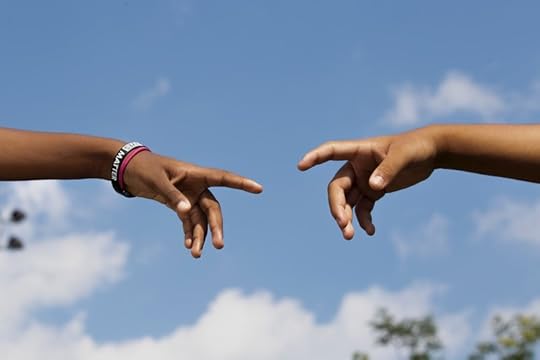 Photographer: No Revisions | Source: UnsplashDoing the inner work makes you more empowered and resilient
Photographer: No Revisions | Source: UnsplashDoing the inner work makes you more empowered and resilientInner work: in order to cope with the unbelievable amount of stress you’re facing today, every young person needs some every day, effective tools.
1. Meditation, yoga, tai chi, pranayama, or Chi Gong: all are modalities for becoming calm and centered, which is crucial if you want to manage the craziness that’s coming at you on a minute-to-minute basis. Taking some time out every day to relax, tune in to yourself and breathe will give you the power to handle the adversity.
2. Unplugging: spending too much time on social media is actually bad for you. It makes you feel more anxious and depressed, more helpless and out of control. Social media makes you compare yourself to what you’re seeing—you’ll inevitably fall short and feel bad about yourself. It’s important every day to step away from your screens and do something that will make you feel good about yourself and your life, for a change.
3. Self-care rituals: eating healthy food, getting regular exercise, getting enough sleep, having some downtime, avoiding toxic substances—these are all essential in enabling you to cope with life’s stresses. The better you take care of yourself, the more resilient you’ll be.
4. Connecting with others: loving, supportive relationships give you the strength to handle just about any difficulty. Keep your relationships healthy by investing time and energy in deepening your connections and in facing the truth about the toxic people in your life and cutting them out, sooner vs. later. With life being so stressful, you don’t need hurtful people dragging you down. You have a choice about who you interact with. You’re entitled to choose people who are caring and uplifting.
 Photographer: Callum Shaw | Source: UnsplashDoing the outer work changes the world for the better
Photographer: Callum Shaw | Source: UnsplashDoing the outer work changes the world for the betterOuter work: these are the actions you can take; the things that you can do in the world to feel better about all the craziness swirling around you.
1. Contribute to your community: stress makes you feel helpless, so doing positive things can help you to feel less so. Start by helping others in your community, whether it’s shoveling the snow for an elderly neighbour, being part of the neighbourhood watch organization, volunteering at your local food co-op, bringing cookies to a sick person in your community, or, like me, rescuing feral cats. Every time you do good, you feel empowered and happy that you’ve brightened someone’s day.
2. Engage in social activism: there are so many good causes to participate in. Choose something that is meaningful to you and join in. It doesn’t matter what it is. Anything you do will make a difference in the world, and it will make the world a better place for your future. This will help you to feel less helpless in the short run, and it will improve everyone’s life, in the long run.
3. Contribute to a charity: if you can, it helps to give money to a good cause. I just sent a contribution to the Canadian Red Cross, to help the situation in Ukraine. If you don’t have the cash, you can volunteer. These charitable organizations do enormous good in difficult times, alleviating untold suffering.
4. Make art to draw attention to what’s wrong: there is a long history of artists speaking out against injustice, corruption, criminality, and unfairness. Art for social change, protest songs, confrontational theatre—all of these have a long tradition. My medium is writing, but there are many ways to use art to speak out about the things that matter to you and that need to change.
Don’t give up. There is hope if you do the inner and outer workIt can be hard to maintain your equanimity in the face of everything going on, today. After two horrendous years of COVID, the invasion of Ukraine might feel like the last straw but don’t give up and don’t run away from it all.
You can face the harsh realities of our times and engage in the inner and outer work that will enable you to handle the stress with grace and ease. And, in the process, you’ll be making the world a better place for yourself and those around you, right now and for the future.
______
Sign up here for my free biweekly wellness newsletter that brings you fresh, thought-provoking content.
Subscribe to my YouTube Channel where you’ll learn simple tips for taking the best care of yourself and your loved ones.
Tune in to my Ruthless Compassion Podcast where I go in-depth about topics like mental health, trauma, and loneliness.
if(window.strchfSettings === undefined) window.strchfSettings = {};window.strchfSettings.stats = {url: "https://marciasirotamd.storychief.io/... "How Gen Z Can Cope with Today’s Crazy, Unrelenting Stress",id: "84fb0907-fb13-4676-8158-d29510e9b589"};(function(d, s, id) {var js, sjs = d.getElementsByTagName(s)[0];if (d.getElementById(id)) {window.strchf.update(); return;}js = d.createElement(s); js.id = id;js.src = "https://d37oebn0w9ir6a.cloudfront.net... = true;sjs.parentNode.insertBefore(js, sjs);}(document, 'script', 'storychief-jssdk'))
The post How Gen Z Can Cope with Today’s Crazy, Unrelenting Stress appeared first on Marcia Sirota.
February 22, 2022
“Irreparable Harm” Was Done by Allowing Valieva to Keep Skating
Like millions of people around the world, I’ve been following the Kamila Valieva story. This fifteen-year-old figure skater from the Russian Olympic Committee (ROC) had performed brilliantly in the team event, helping the team win gold. She seemed destined to win the individual women’s gold medal as well.
But then, on February 8th, she was found to have tested positive for the banned substance, trimetazidine, in an earlier drug test from December 25th. (The test results were said to have been delayed due to a back-up in the testing lab.)
Two other (not banned, but suspicious) performance-enhancing substances were found on Valieva’s test and it seemed obvious that this fifteen-year-old couldn’t have doped herself with such a sophisticated drug cocktail. The International Olympic Committee (IOC) chose to forego the medal ceremony for the team event, pending an investigation.
On February 14th, the three-person Court of Arbitration for Sport (CAS) ruled that because she is a minor, and a “protected person,” and because it might cause her “irreparable harm” not to skate, Valieva was allowed to continue skating in the women’s individual competition.
However, the IOC ruled that there would be no medal ceremony if Valieva placed first, second, or third in the women’s individual competition, and that none of the top three would receive their medals until the full investigation into Valieva and her team was completed.
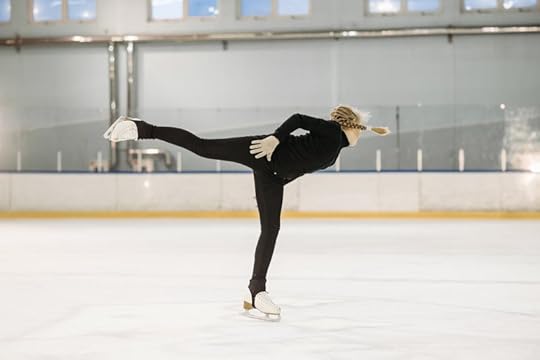 Source: Pexels.comThe CAS decision was shocking and disturbing to everyone watching and participating
Source: Pexels.comThe CAS decision was shocking and disturbing to everyone watching and participatingThis decision was distressing to the other skaters, as well as to former Olympians and commentators who expressed shock and outrage at Valieva still being allowed to compete. Some former Olympic medalists took to social media, posting their staunch opposition to the decision to let Valieva skate.
Commentators Tara Lipinsky and Johnny Weir were careful not to criticize Valieva herself, but both remained adamant that she should not have been allowed to skate.
Because Valieva is a minor, her coaches and her team were immediately under suspicion and the other ROC skaters were suddenly under intense scrutiny. The stress on the team, and on Valieva herself, went from enormous to overwhelming.
Valieva did well in the short program, but right afterwards, she broke down in tears and refused any interviews. She came into the free skate with the highest score from the short program. With her combination of technical skills and artistic ability, she still seemed destined to win the gold medal – if you knew nothing about human psychology.
Anyone with any emotional intelligence at all would have been waiting for Valieva’s inevitable crash and burn. There was no way that a fifteen-year-old kid could tolerate all the negativity swarming around her.
The decision not to award any medals if Valieva were to place in the top three put added pressure on all the other skaters. Imagine training intensively for years, only to be denied your moment on the podium because of someone who was found to have cheated but who was still allowed to compete? That decision risked causing “irreparable harm” to all the other competitors at these games.
And for Valieva, how frustrating it must have been to be allowed to skate, but to know that she was forbidden to stand up and receive her medal, maybe ever. I can’t imagine what it felt like for Valieva as she headed into the free skate, but her behaviour during those few short minutes gives a clear indication of her mental state at the time.
 Source: Pexels.comValieva understandably collapsed under the pressure
Source: Pexels.comValieva understandably collapsed under the pressureDuring the free skate, Valieva fell apart. She looked like a totally different skater, failing to land several jumps and tumbling to the ice several times.
It was obvious that the pressure was too much for her and she simply couldn’t cope. It showed in every movement she made on the ice. And when her routine was finished, she broke down in tears and didn’t stop crying, refusing any attempts at an interview.
Like all the other adults around her who had failed her, Valieva’s coach, Eteri Tutberidze, only added to her suffering, as she was overheard to be berating the teenager, asking her, “Why did you let it go? Explain to me, why. Why did you stop fighting? You let it go after that Axel. Why?”
The IOC president, Thomas Bach, characterized Tutberidze’s response as “chilling,” saying that Valieva had been treated with “tremendous coldness” by her coach. He added that he was “very, very disturbed” at the reactions of Tutberidze, as well as Valieva’s “entire entourage.”
Still, this seems rather disingenuous, given that Bach and the IOC stood to benefit from Valieva being allowed to skate. Bach’s compassion for the teen was too little, too late.
After Valieva’s disastrous performance in the free skate, she dropped into fourth place and her two teammates, Anna Scherbakova and Alexandra Trusova, won gold and silver medals, respectively. Kaori Sakamoto of Japan won the bronze. Because Valieva had failed, the medal ceremony could take place.
The NBC commentators were overheard spontaneously saying “Thank goodness,” and “Thank God,” when the results were announced. Their relief was huge, and it mirrored that of so many of the viewers.
 Source: Pexels.comPsychological awareness is necessary if you want to prevent “irreparable harm”
Source: Pexels.comPsychological awareness is necessary if you want to prevent “irreparable harm”After Valieva came off the ice, anyone who was watching her team got to see the emotional fallout of the misguided decision to allow Valieva to skate. Ostensibly, the CAS had been trying to prevent “irreparable harm” to this young girl, but her obvious devastation following her final skate demonstrated that in fact, real harm had been done by allowing her to skate.
The CAS should have known how controversial their decision would have been, and how the brunt of the negative attention would fall on Valieva’s narrow shoulders. They should have understood that no young person could tolerate this amount of negative publicity and the mounting criticism coming from all sides. They should have recognized that it was inevitable that this young girl would crumble under the pressure.
As a psychiatrist and as someone who understands how the human mind works, I imagined that Valieva would have been understandably upset if she’d been prevented from skating after her test results came in.
But I also understood that this would have been much less harmful to her than the devastation she felt during and after her free skate – harm that could have been prevented if the CAS had ruled differently.
 Source: Pexels.comAll of the skaters suffered because of the CAS decision
Source: Pexels.comAll of the skaters suffered because of the CAS decisionThe CAS ruling was deeply unfortunate because Valieva wasn’t the only one to suffer. The gold medalist, Scherbakova, was walking around in a daze, after she won the gold medal, saying that she felt “empty.” This is not your typical reaction to an Olympic win.
The silver medalist, Trusova, had a tantrum after the results were in, vowing never to state again. She was sobbing and almost shouting at her trainers – something I’ve never seen at any athletic competition, let alone at the Olympic games.
On the surface, Trusova was complaining that she was the only one from her team who didn’t have a gold medal, but it seems to me that there was something else at play here. I doubt that she would have had such a meltdown if it weren’t for all the stress that she and her team was under.
None of the skaters were left unaffected by the disastrous handling of Valieva’s situation. Her teammates had the worst of it, but everyone in the competition was left to grapple with the ramifications of the CAS’s ill-conceived decision.
It must have been horrible for these young skaters to be competing – fairly – against someone who they perceived as cheating. They must have felt so abandoned and betrayed by those entities who seemed to be breaking their own rules in this case.
The “irreparable harm” that the CAS was supposed to prevent has occurred. Their decision, as expected, has backfired – on Valieva, on her team, and on every other skater at these Olympic games.
Valieva has failed to live up to her promise as a superstar – and really, what fifteen-year-old could have done so, under the circumstances? She has lost her gold medal; she remains under investigation over the doping, and she’s an emotional wreck.
She’s garnered far more negative publicity by having been allowed to skate than she would have if she’d been made to sit out the rest of the Olympics. Who knows if she’ll ever skate again? In Russia, every athlete is easily replaceable. Her life is in shambles, and she’s only fifteen.
 Source: Pexels.comThe CAS lacked psychological awareness and emotional intelligence
Source: Pexels.comThe CAS lacked psychological awareness and emotional intelligenceThe CAS demonstrated a profound lack of emotional intelligence when they chose to allow Valieva to skate. The outcome for her, and for everyone around her, was exactly the opposite of what they claimed to have wanted.
If “irreparable harm” was what they were trying to prevent, I wish that the CAS would have consulted with a mental health professional before rendering their decision.
Any competent psychologist or psychiatrist would have told them that allowing Valieva to skate would have been much harder on her, mentally, than preventing her from doing so.
The entire situation has been a disaster from the outset. From the delayed test results to the CAS decision, to Valieva’s implosion during the free skate, to her teammates’ misery after winning silver and gold, to the profound distress of everyone participating, commenting, or watching.
It’s a cautionary tale about how preventing irreparable emotional harm requires a much deeper understanding of human psychology than the CAS and the IOC appear to have.
______
Sign up here for my free biweekly wellness newsletter that brings you fresh, thought-provoking content.
Subscribe to my YouTube Channel where you’ll learn simple tips for taking the best care of yourself and your loved ones.
Tune in to my Ruthless Compassion Podcast where I go in-depth about topics like mental health, trauma, and loneliness.
if(window.strchfSettings === undefined) window.strchfSettings = {};window.strchfSettings.stats = {url: "https://marciasirotamd.storychief.io/... "“Irreparable Harm” Was Done by Allowing Valieva to Keep Skating",id: "84fb0907-fb13-4676-8158-d29510e9b589"};(function(d, s, id) {var js, sjs = d.getElementsByTagName(s)[0];if (d.getElementById(id)) {window.strchf.update(); return;}js = d.createElement(s); js.id = id;js.src = "https://d37oebn0w9ir6a.cloudfront.net... = true;sjs.parentNode.insertBefore(js, sjs);}(document, 'script', 'storychief-jssdk'))
The post “Irreparable Harm” Was Done by Allowing Valieva to Keep Skating appeared first on Marcia Sirota.
February 14, 2022
And Just Like That’s Biggest Problems are the Unrelatable and Unlikeable Characters
I was looking forward to the new Sex and The City reboot. I’d been a fan, back in the day, and I was hoping that, after the disastrous third SATC movie, the new show would bring some redemption. Sadly, it was just the opposite, as the new show, And Just Like That, proved to be far worse than anything that the franchise had offered before.
And I can pinpoint one reason for that. It seems like the writers really hated all the characters. And it seemed like they wanted the viewers to hate them, too.
Where do I begin? Let’s start with Carrie. How could the writers not have her call 911 when she arrived home to find that her husband had suffered a massive heart attack but he was still alive? It was incomprehensible that a sane, competent woman wouldn’t immediately call for help. This omission was a total deal-breaker, and it happened in episode one.
Then, to add insult to injury, the writers portrayed Carrie later on as desperate to have her twenty-something neighbour think of her as cool, and doing really pathetic things to try to make it happen.
 Photographer: Adrian Williams | Source: UnsplashCarrie came across as clueless and pathetic
Photographer: Adrian Williams | Source: UnsplashCarrie came across as clueless and patheticIt was excruciating to watch an intelligent, recently-widowed woman in her fifties worrying about such trivialities. And, I know from experience that when a person goes through a profound loss of a loved one, they have no energy to spend on trivial things like whether or not they’re perceived as cool. So, not only was it undignified, it wasn’t plausible. Carrie just came across as incredibly shallow in those scenes.
Next, let’s look at how the character of Miranda was presented. The writers seemed to hate her the most, because they had her doing all the stupid things. In every single episode, Miranda engaged in at least one, if not several, instances of utterly ridiculous behaviour.
To start with, there were the awful, awful things she said in her first human rights class. It was almost unbearable to watch. If someone had written a novel and this character had appeared in the first few pages, the editor would have forbidden the writer to leave her like that, unless she was intended as the villain. But in AJLT, the character started out as entirely unlikeable, and then it got worse.
Miranda’s attraction to Che Diaz was incomprehensible, seeing that the character of Che was universally disliked and was recently considered to be the most hated character on television. The way that Miranda lost her mind over Che made no sense at all, as Che treated Miranda poorly, at the best of times.
 Photographer: Olenka Kotyk | Source: UnsplashChe was downright loathsome
Photographer: Olenka Kotyk | Source: UnsplashChe was downright loathsomeAnd speaking of Che, the writers really seemed to hate them, too, as they wrote the character as a comedian who wasn’t funny, and as a romantic interest who nobody could possibly love.
And then, for Miranda to give up her prestigious human rights fellowship to follow Che to LA for pilot season seemed completely insane. Anyone who watched SATC knows how badly it went when Samantha did something similar, following Smith to LA for his film career.
Miranda had the benefit of her friend’s experience, so her character should have known better. Also, she was supposed to be a brilliant lawyer, and a feminist. How could she abandon her own, very important plans to run after Che?
 Photographer: Amanda Vick | Source: UnsplashMiranda came across as a walking disaster
Photographer: Amanda Vick | Source: UnsplashMiranda came across as a walking disasterIt was so disappointing to see the character do that, especially in 2022. It was like Miranda was written as a cautionary tale for how not to go about pursuing a romantic relationship. And on a side note, was I the only one who was convinced that Miranda’s trip to Cleveland was a set-up for disaster? Was I the only one screaming at the TV set, “don’t go! It’s not going to end well for you!” I think not.
No-one shows up to surprise their love interest in a work of fiction without things going south. That’s writing 101. Why did the writers even bother?
And let’s talk about the scene in which Miranda is having loud, drunken sex in the kitchen of Carrie’s apt while Carrie is lying in bed after hip surgery. That was so hard to watch. And not because it was in any way steamy. It was cringe-worthy.
And it was deal-breaker behaviour on the part of a supposed friend. No self-respecting person would have tolerated that. The writers must have hated both Miranda, for making the character behave so badly, and Carrie, for forgiving her friend so easily.
 Photographer: Wells Baum | Source: UnsplashCharlotte appeared racist and self-centered
Photographer: Wells Baum | Source: UnsplashCharlotte appeared racist and self-centeredNext is Charlotte, whose pursuit of Lisa Todd Wexley seemed almost fetishistic, as though she wanted to befriend Lisa for reasons other than the fact that they happened to like one-other. It was super uncomfortable when Charlotte tried to invite her Black neighbour to a dinner party at her house to “prove” to Lisa that she wasn’t her only Black friend—which, of course, she was.
But that was nothing compared to having to watch Charlotte’s character mistaking one of the Black women at Lisa’s dinner party with another woman of her acquaintance, implying that Charlotte couldn’t distinguish one woman of colour from another. Could the writers have hated her any more?
In an unrelated storyline, the writers made Charlotte appear terribly petty in refusing to apologize to her husband for knocking him over on the tennis court. Even at the end of the scene, the only thing that seemed to matter to her was not coming across to her friends as a bickering couple.
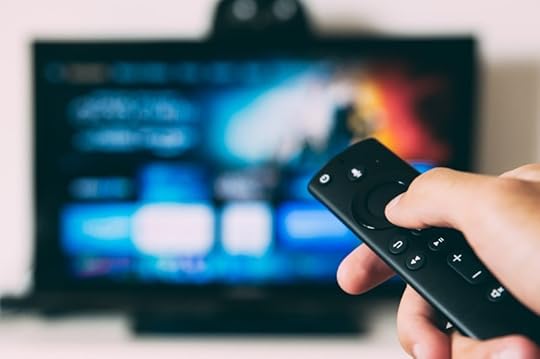 Photographer: Glenn Carstens-Peters | Source: UnsplashThe supporting characters were painful to watch
Photographer: Glenn Carstens-Peters | Source: UnsplashThe supporting characters were painful to watchWhen it came to the character, Anthony, the writers had the dial on him turned up to eleven at all times. The character came across as a shrieking harpy, screaming at everyone, all the time. It was deeply painful to watch, and I felt sorry for the actor portraying him.
And the new character of Seema. Why did they have to make her a smoker? It was totally unnecessary. She and Carrie had plenty of other things to bond over. She came across as dumb to be smoking in 2022.
And why did the writers have Lisa pulling up in a white stretch limo at the charity house-painting event? It came across as tone-deaf to be spending money so lavishly when the same funds could have gone to the charity. It made the character come across as shockingly entitled and oblivious.
 Source: Pexels.comSteve came across as a loser
Source: Pexels.comSteve came across as a loserAnd poor Steve. The writers wrote him as such a loser. They turned his deafness into a bad joke and made him impotent in his fifties, while still hopelessly devoted to Miranda—a woman who treated him like garbage. As an actor was he mortified to say his lines?
In the scene where Miranda was trying to have sex with Steve, why couldn’t the writers have gotten the couple to make love, and then show Miranda the next morning realizing that it wasn’t about the lack of sex—it was that she wasn’t happy in the relationship? At least then, Steve wouldn’t have been emasculated.
And when Miranda broke up with her husband, why couldn’t the writers have made her say, “there’s nothing wrong with you, Steve. It’s just that I realized I’m queer.” That would have enabled Steve to maintain his dignity. But no, the writers had to portray him as pathetic as possible.
 Photographer: Becca Tapert | Source: UnsplashCharacters in fiction have to be likeable, or no-one will want to stay with them
Photographer: Becca Tapert | Source: UnsplashCharacters in fiction have to be likeable, or no-one will want to stay with themSpeaking of cautionary tales, this entire series is a cautionary tale about how not to write characters. Sure, it’s interesting when a character messes up. It’s interesting when they fall short, but the characters have to learn from their mistakes. They have to grow and evolve. When they are written as so completely oblivious, pathetic, and/or unlikeable, and they are incapable of changing, the viewer stops wanting to spend time with them.
As much as I enjoyed the old SATC characters, warts and all, I can’t get behind the new AJLT characters and I may never be able to; not unless the writers start making them even a little bit more likeable, admirable and relatable.
______
Sign up here for my free biweekly wellness newsletter that brings you fresh, thought-provoking content.
Subscribe to my YouTube Channel where you’ll learn simple tips for taking the best care of yourself and your loved ones.
Tune in to my Ruthless Compassion Podcast where I go in-depth about topics like mental health, trauma, and loneliness.
if(window.strchfSettings === undefined) window.strchfSettings = {};window.strchfSettings.stats = {url: "https://marciasirotamd.storychief.io/... "And Just Like That’s Biggest Problems are the Unrelatable and Unlikeable Characters",id: "84fb0907-fb13-4676-8158-d29510e9b589"};(function(d, s, id) {var js, sjs = d.getElementsByTagName(s)[0];if (d.getElementById(id)) {window.strchf.update(); return;}js = d.createElement(s); js.id = id;js.src = "https://d37oebn0w9ir6a.cloudfront.net... = true;sjs.parentNode.insertBefore(js, sjs);}(document, 'script', 'storychief-jssdk'))
The post And Just Like That’s Biggest Problems are the Unrelatable and Unlikeable Characters appeared first on Marcia Sirota.
February 10, 2022
Being Happily Single on Valentine’s Day Means Embracing Solitude
February is the month that celebrates Valentine’s Day, but this year it’s going to be a different kind of holiday. COVID has turned the world upside-down and one of the things that have changed is the dating scene.
Restaurants are at half-capacity and prices have sky-rocketed. There’s still the risk of catching COVID when the masks come off. As a result, only seriously-in-love couples are going to want to bear the risks and part with their hard-earned cash this coming February 14th.
Many people will choose to stay home and have a quiet evening, whether they’re part of a couple or on their own. It could be a night of reflection about love and a contemplation of future romantic goals. Or maybe not.
Over the past two years, all the forced isolation and mostly online interactions have created many opportunities for people to seriously reconsider what they want in dating and relationships.
 Source: Pexels.comNew dating trends
Source: Pexels.comNew dating trendsIn 2022, there are a few emerging trends in online dating, according to an article on NewsHub. The first trend is something called, “explori-dating,” which is all about connecting with different types of people than you would have dated in the past.
The pandemic has provided all of us with plenty of time to reflect on what we want out of our lives, and to rethink some of the dating and relationship choices we’ve made in the past. Explori-dating is a way of putting aside the old approaches and dating different kinds of people to see if they might be a better fit.
Another trend is being “consciously single,” which is when people hold off starting a relationship until they find someone who they really want to be with. They’d rather be single than in a relationship that isn’t giving them exactly what they want. They choose the single life over being unhappily coupled-up.
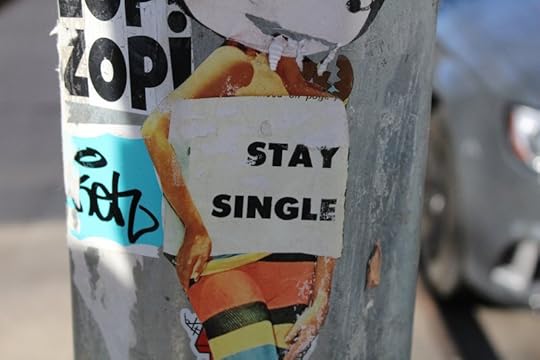 Photographer: call me hangry
Photographer: call me hangry  | Source: UnsplashSingle at heart
| Source: UnsplashSingle at heartAnd then there’s the opposite trend. Author Bella DePaulo, writes about the choice of being single at heart. This describes people who are happiest without a romantic relationship and for whom being single is the path toward their “most authentic, meaningful and fulfilling life.” She even offers a brief questionnaire for anyone who wants to know if they’re “single at heart.”
What all of these ideas have in common is that there’s a lot more flexibility in how people can approach dating and relationships these days, including opting-out altogether and being perfectly happy as a single person.
Bella DePaulo stresses that being single doesn’t mean being alone, and she describes a life filled with friends, family, and social activities—just without a romantic partner and with a lot more solitude—something she sees as highly desirable.
 Source: Pexels.comSolitude is essential for happiness—whether single or in a couple
Source: Pexels.comSolitude is essential for happiness—whether single or in a coupleIn fact, Ms. DePaulo has written about a segment of the population who “cherished their solitude before the pandemic” and who had “already cultivated the kinds of interests that have turned out to be pandemic proof.”
She mentioned a woman who has been thriving during the pandemic because she’s spent her time “reading, meditating, writing, running and strength training.”
This woman’s friends “prefer to spend most of their free time on dates, at various live shows, and at bars or nightclubs” and DePaulo said that these folks have been “more distressed about the isolation” during the pandemic than the woman who was comfortable with her solitude.
From where I stand as a psychiatrist, it’s clear that whether you choose to be single at heart, consciously single, or actively dating, being comfortable with solitude is an essential ingredient for happiness and success.
You should never date from a place of loneliness or desperation, as that is likely to set you up for all sorts of unpleasant experiences. Being okay with solitude means that you can choose to date, hold off on dating, or never date, knowing that you’ll always feel fine.
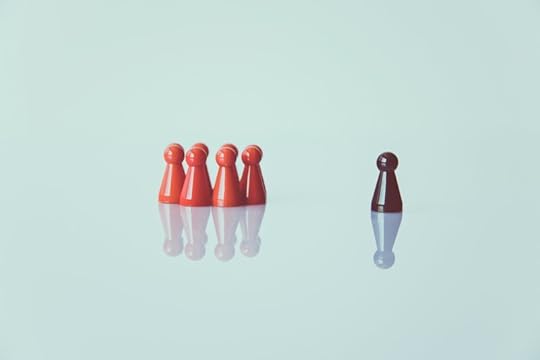 Source: Pexels.comBeing okay with solitude
Source: Pexels.comBeing okay with solitudeBeing okay with solitude means enjoying your own company and having a lot of self-love. It means never staying in a bad relationship because you’re afraid of “being alone.”
It means never being afraid to confront someone about their bad behaviour for fear that they’ll get angry at you. If you discover that the person you’re involved with is an unreasonable jerk who can’t take responsibility for their actions, you’ll be perfectly comfortable with walking away.
Being okay with solitude means that you’ll never jump too quickly into a relationship without really knowing the other person, and that you’ll never ignore the red flags you see at the start.
Being okay with solitude gives you the freedom to take the best possible care of yourself and do whatever works best for you in all of your relationships. It prevents you from wasting your precious time on people who don’t deserve it and it’s a whole lot safer, too.
In 2022, when there are so many options to explore in dating, relationships and being consciously or inherently single, being good with solitude is your super-power for happiness and success.
As Valentine’s Day approaches, whatever you choose in terms of dating or singleness, I invite you to work on enjoying your solitude, so that you can make the best of your relationships and your life.
______
Sign up here for my free biweekly wellness newsletter that brings you fresh, thought-provoking content.
Subscribe to my YouTube Channel where you’ll learn simple tips for taking the best care of yourself and your loved ones.
Tune in to my Ruthless Compassion Podcast where I go in-depth about topics like mental health, trauma, and loneliness.
if(window.strchfSettings === undefined) window.strchfSettings = {};window.strchfSettings.stats = {url: "https://marciasirotamd.storychief.io/... "Being Happily Single on Valentine’s Day Means Embracing Solitude",id: "84fb0907-fb13-4676-8158-d29510e9b589"};(function(d, s, id) {var js, sjs = d.getElementsByTagName(s)[0];if (d.getElementById(id)) {window.strchf.update(); return;}js = d.createElement(s); js.id = id;js.src = "https://d37oebn0w9ir6a.cloudfront.net... = true;sjs.parentNode.insertBefore(js, sjs);}(document, 'script', 'storychief-jssdk'))
The post Being Happily Single on Valentine’s Day Means Embracing Solitude appeared first on Marcia Sirota.
February 7, 2022
This Valentine’s Day, Start a Love-Affair With Yourself
As Valentine’s Day approaches, I’ve been thinking about how, more than ever, we need love these days. For the past two years, we’ve been stressed to the max while being socially isolated—a very unfortunate combination.
In the past, whenever we’ve had troubles, we could always rely on our loved ones to support us and they’ve always been able to count on us as well. Not these past couple of years. People are lonelier than ever after two years of mostly online interactions.
But, as February 14th approaches, many people are finding themselves alone. Singles have had a much harder time finding a partner since the onset of COVID, and many couples have broken up after the months of forced togetherness showed them that they were incompatible.
 Source: Pexels.comWhy not start a love-affair with yourself?
Source: Pexels.comWhy not start a love-affair with yourself?Some of these single people might be dreading Valentine’s Day, but I have a suggestion. Love is always available. Even if you don’t have a romantic partner, you can always have self-love. My suggestion is that in honour of Valentine’s Day, start a love affair with yourself.
A lot of people misunderstand the notion of self-love. They think it means being a narcissist who only cares about themselves, but that’s not true at all. Real self-love doesn’t exclude anyone else. In fact, the more self-love you have, the more it fills you up and spills over onto the people around you, like a cup overflowing with love.
Self-love is not selfishness. Real self-love leads to good self-care. Some people might accuse you of being selfish if you love yourself enough to set limits on their hurtful behaviour, but that’s only because they don’t want you to protect yourself at their expense. They want to keep mistreating you so they accuse you of being “selfish,” when you exhibit self-love. They’re the one with the problem, not you.
Self-love enables you to know yourself deeply. With self-love, you can see the truth about yourself and hold yourself accountable for the choices you’ve made. So many people are afraid to see themselves clearly, and that’s due to a lack of self-love. They’re afraid that once they really see themselves, they might hate themselves.
When your journey of self-discovery is grounded in self-love, you never have to be afraid of what you might learn. The acceptance and forgiveness that comes from self-love makes it possible to be completely honest with yourself. And this enables you to keep growing and improving as a person.
Self-love enables you to silence the voice of the “inner critic” that tells you that you’re “not good enough,” “a failure,” or “not lovable.” These lies are things that you learned from people who didn’t have your best interests at heart or who were sadly mistaken. With increased self-love, you can reject these hurtful messages and see that you’re good enough and lovable, just the way you are.
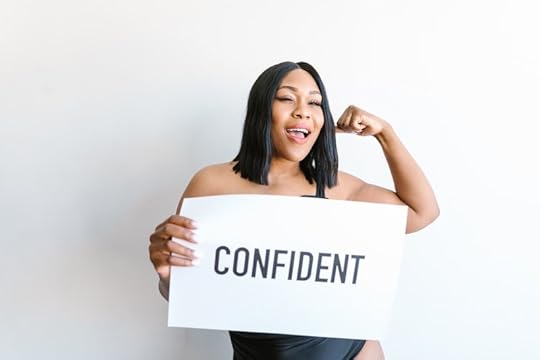 Source: Pexels.comStarting a love-affair with yourself will help you become your best self
Source: Pexels.comStarting a love-affair with yourself will help you become your best selfThe best relationships make you feel fully accepted but at the same time, challenged to keep evolving. They support you where you are and they bring out the best in you. They make you happy and calm, not stressed or fearful. For the same reason, having a love affair with yourself should bring out your best and improve your overall mood and well-being.
Self-love is not only good for you but it’s good for everyone around you. When you’re filled with self-love, you’re more fun to be around. You’re more easy-going and more prone to be kind, caring, and forgiving.
When you’re not feeling stressed by self-criticism and self-doubt, you’re more likely to be tolerant and accepting toward others and less likely to be judgmental, fearful, or paranoid.
But because you love yourself, you’re also less likely to put up with disrespect or abuse. With self-love, you’re going to protect and defend yourself as fiercely as a mamma bear protects her cubs, and that’s a good thing.
When you love yourself, you know that anyone who accuses you of being “selfish” is most likely an abuser who is angry that you won’t sit there and take their abuse. That’s important information about them, as it tells you who to avoid.
When you love yourself, you attract more people who are capable of showing love to you. It’s sad, but people who don’t love themselves enough tend to attract abusers. This is because the abusers are always looking around for anyone who’ll tolerate mistreatment.
People with good self-love are less likely to put up with anything less than the utmost respect, so the abusers will often pass them by and move on to easier prey. And if they do latch on, it won’t be for long, as they see that you won’t put up with their mistreatment.
When you have a lot of self-love, you’re more attractive to positive people. It feels good to be in your presence when you have self-love, and others respect you more when you love yourself. Self-love attracts kinder, more loving, and more generous friends and romantic partners.
 Photographer: Tim Marshall | Source: UnsplashBeware of those with pseudo-self-love
Photographer: Tim Marshall | Source: UnsplashBeware of those with pseudo-self-loveThere are some people who pretend to have self-love but it’s a false front. These people are superficially charming and seemingly confident but they’re fundamentally insecure and deeply selfish. They’re so preoccupied with their own needs that they’re incapable of caring about anyone else.
They want desperately to be loved so they might pretend to be nice, helpful, even admirable, but it’s all a con job. These are the narcissistic individuals who give self-love a bad name. They have what I call, pseudo-self-love.
Still, it’s possible to see through them. True self-love never excludes others. Yes, someone with self-love will have good boundaries around abusers, but otherwise, they’ll be kind and caring to others. The narcissist, on the other hand, will quickly demonstrate that they care about no-one but themselves.
This pseudo-self-love comes from a lack of genuine self-love. These people are trying to compensate for an inner emptiness by getting everyone around them to love them. But they’re faking it, putting on an act, so no-one is loving the real person. By presenting a false front, they’ve made it impossible to be loved for who they really are.
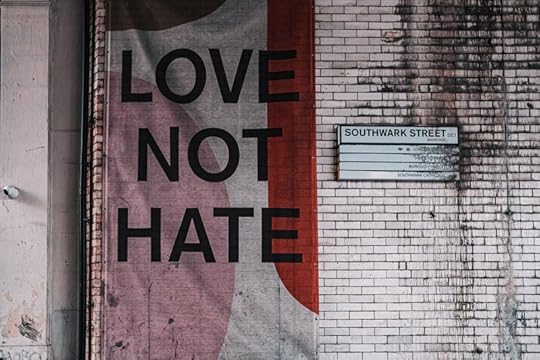 Photographer: Samuel Regan-Asante | Source: UnsplashPseudo-self-love is the antithesis of self-awareness, self-acceptance and self-love
Photographer: Samuel Regan-Asante | Source: UnsplashPseudo-self-love is the antithesis of self-awareness, self-acceptance and self-loveThese people misunderstand what love is, so they can’t love themselves, either. They think love is a prize to be won, as opposed to something given freely from one heart to another. These people are playing a game of who wins the prize.
Since their hearts are closed down, they miss out on what could really fulfill them. All the admiration they receive for their slick act is meaningless. They take and take, but they always feel empty. Think of them as the anti-love people. And by the way, they’re the ones most likely to call you selfish when you set limits on their bad behaviour.
Pseudo self-love is the cheap imitation of real self-love; it’s the empty-calorie version providing no nutrition and leaving the person always craving more. People with pseudo self-love have nothing inside them and nothing to give to others. It’s a lose-lose proposition.
On the other hand, real self-love is deeply fulfilling. It brings inner peace, confidence and optimism, and it makes you a better version of yourself. When you’re overflowing with self-love it enables you to be that much more loving with others. It’s a win-win.
Now that you know the difference between self-love and selfishness, real self-love and pseudo-self-love, I invite you to start a mad, passionate, beautiful love affair with yourself. Not only will it make you so much happier, it’s likely to overflow onto all sorts of other people, and who knows where that will go?
______
Sign up here for my free biweekly wellness newsletter that brings you fresh, thought-provoking content.
Subscribe to my YouTube Channel where you’ll learn simple tips for taking the best care of yourself and your loved ones.
Tune in to my Ruthless Compassion Podcast where I go in-depth about topics like mental health, trauma, and loneliness.
if(window.strchfSettings === undefined) window.strchfSettings = {};window.strchfSettings.stats = {url: "https://marciasirotamd.storychief.io/... "This Valentine’s Day, Start a Love-Affair With Yourself",id: "84fb0907-fb13-4676-8158-d29510e9b589"};(function(d, s, id) {var js, sjs = d.getElementsByTagName(s)[0];if (d.getElementById(id)) {window.strchf.update(); return;}js = d.createElement(s); js.id = id;js.src = "https://d37oebn0w9ir6a.cloudfront.net... = true;sjs.parentNode.insertBefore(js, sjs);}(document, 'script', 'storychief-jssdk'))
The post This Valentine’s Day, Start a Love-Affair With Yourself appeared first on Marcia Sirota.
February 2, 2022
It’s Time to Cancel the Expression, “Resting Bitch Face.”
Have you ever wondered where the expression, “resting bitch face” came from? I’ve been thinking about it lately and I thought I’d unpack the idea.
Most notably, “resting bitch face” is only applied to women. It signifies a woman whose face falls into an expression that is considered unpleasant to those who might be looking at her. Interestingly, a man with a similar serious or frowning expression at rest is often seen as someone deep, serious, or intellectual. The woman is simply seen as a bitch.
The expression “resting bitch face” bothers me because it implies that a woman must at all times strive to present herself to the world—and in particular, to the male gaze—as pleasant, friendly, and non-threatening. If her expression is sour, serious, or angry then without a doubt, she’s a bitch.
 Source: Pexels.comAre women still expected to constantly make an effort to please men?
Source: Pexels.comAre women still expected to constantly make an effort to please men?It bothers me that in 2022, women are still expected to make a constant effort be pleasing to the male gaze. Even when our faces are at rest, they have to appear pleasant and appealing. We are still judged by whether or not a man would be pleased or displeased by our facial expressions. If we aren’t making an effort to please, the assumption is that we’re a bitch.
So, what is a bitch? In my mind, it’s a woman who’s not nice, according to the male point of view. She’s not pleasing, accommodating or ingratiating. She isn’t going out of her way to make the men around her feel comfortable. She isn’t trying, all the time, to make the men around her feel good. She hasn’t plastered on a facial expression that says, “I’m nice. I’m approachable. I’m here to put you at ease.”
The expression, “resting bitch face” is used on women as a way of criticizing them for not making more of an effort to appear pleasing to the male gaze. As if we should spend our busy days hyper-aware of the possibility that we might offend some poor man by not always being smiley-faced or looking sweet.
My twenty-three-year-old assistant told me that before masks were the norm, she was always being stopped in the street by strangers who would ask her, “What’s wrong? Why aren’t you smiling?” These strangers thought they had a right to tell her that as an attractive young woman, she “should” be walking around with a smile on her face. She found that offensive, and I agree with her.
 Source: Pexels.comMy patient believes that how other people see her is what matters
Source: Pexels.comMy patient believes that how other people see her is what mattersI have a patient who always defines herself by how other people see her. When I point out that yet another person has been behaving abusively toward her, she invariably tells me that, “they don’t think they’re being abusive. They say that I’m the one who hurt them.”
In her mind, how other people see her is more important than how she sees herself. Naturally, she is constantly being mistreated and then minimizing her unhappiness by rationalizing to herself—and to me, her therapist—that the other person’s point of view is the only one that counts.
Saying that a woman has a “resting bitch face” is implying that she’s giving offense by refusing to conform to an expectation—that of always presenting herself in a way that would please a man. But why should a woman have to do that? Why is it necessary to always conform to male expectations of how we should walk through the world?
 Source: Pexels.comWe women don’t think about the sexist traps we fall into
Source: Pexels.comWe women don’t think about the sexist traps we fall intoAs women, we don’t spend enough time thinking about the sexist traps that we fall into. We don’t consider, nearly enough, how we’re constantly trying to be pleasing to men, or what is underlying all this effort. We don’t think about how our value as women, and as people, is much too wrapped up in how men see us.
If we’re seen as having a “resting bitch face” our value is automatically lowered, because by not pleasing the men around us, we become defined as women who aren’t “good enough.” If we’re not constantly making sure to look pleasing to men, we’re somehow deficient as women: unattractive, undesirable, unacceptable.
If a man is walking around with a frown on his face, no-one sees him as less of a man. Most people automatically assume that he’s thinking deeply or trying to solve an important problem. Or, if he’s a man of colour, perhaps some people assume that he’s up to some kind of trouble—but that’s a story for another article.
In general, a man can have a serious expression on his face and no-one would call him the male equivalent of a bitch. Even the fact that there is no male equivalent of the word, bitch, is telling. It’s an insult just for women—women who don’t try their best to please men!
 Photographer: Annie Spratt | Source: UnsplashMen aren’t expected to always present as pleasing to women
Photographer: Annie Spratt | Source: UnsplashMen aren’t expected to always present as pleasing to womenMen aren’t expected to present themselves as acceptable to the women around them, and their value doesn’t rise or fall, depending on whether the women around them see their expressions as pleasing or displeasing. A man, in general, doesn’t think about the expression on his face. His face is his face, and whatever it reflects is just there. It’s no big deal. Why can’t it be the same for a woman?
I propose that we eliminate the expression, “resting bitch face” from our vocabulary. Just like some other words and phrases that we no longer use because they’re racist or sexist, demeaning or derogatory, we should banish this expression from our conversations.
A woman should be free to have whatever expression on her face she wants, and if her resting features are serious, angry, or frowning, who cares? Her facial expression is not a reflection of her value as a woman or as a person, and she shouldn’t constantly have to make an effort to change her expression in order to please some random men.
Women’s liberation should include the freedom to have whatever expression we want on our faces; in fact, to not have to think about how our face happens to look at any given moment. Real liberation is walking through our lives, independent of the male gaze. It’s knowing that our value as women is intrinsic—that it never has depended on the male gaze and that it never will.
______
Sign up here for my free biweekly wellness newsletter that brings you fresh, thought-provoking content.
Subscribe to my YouTube Channel where you’ll learn simple tips for taking the best care of yourself and your loved ones.
Tune in to my Ruthless Compassion Podcast where I go in-depth about topics like mental health, trauma, and loneliness.
if(window.strchfSettings === undefined) window.strchfSettings = {};window.strchfSettings.stats = {url: "https://marciasirotamd.storychief.io/... "It’s Time to Cancel the Expression, “Resting Bitch Face.”",id: "84fb0907-fb13-4676-8158-d29510e9b589"};(function(d, s, id) {var js, sjs = d.getElementsByTagName(s)[0];if (d.getElementById(id)) {window.strchf.update(); return;}js = d.createElement(s); js.id = id;js.src = "https://d37oebn0w9ir6a.cloudfront.net... = true;sjs.parentNode.insertBefore(js, sjs);}(document, 'script', 'storychief-jssdk'))
The post It’s Time to Cancel the Expression, “Resting Bitch Face.” appeared first on Marcia Sirota.
January 31, 2022
Barbershops are Where Men of Colour Can Find Mental Health Support
I came across an article by the CBC about a couple of barbershops that offer free cuts, shaves, and fades twice a week, and at the same time, they offer the participants free mental health support.
Dr. Ron Milne, who is spearheading this initiative said that men, in general, don’t feel comfortable talking about their mental health but this barbershop model has been successful elsewhere and he wanted to try it in his community.
The men and boys who show up at the barbershops get to talk about anything from racism in the workplace and issues with the police, to how the pandemic has disproportionately affected people of colour. The participants have an opportunity to vent their frustrations and receive real support for their challenges with mental health.
 Source: Pexels.comThe Confess Project connects Black men with mental health support
Source: Pexels.comThe Confess Project connects Black men with mental health supportLooking around, I discovered that this idea of barbers taking on a supportive role is widespread. In an article in Healthline, the author, Cathy Cassata writes about Lorenzo P. Lewis who in 2016 started the Confess Project, as the first mental health barbershop movement in the US.
Lewis is quoted in the article as saying that, “barbershops have been used for social justice back to the civil rights era, and there is a lot of historical context around the barbershop, so I took this history… and extended it out to help barbers be advocates in their community.”
Lewis added that, “there is confusion of where to go for services and how to access them. Barbers know their clients and can help. They can be leaders and mental health advocates in their community in nontraditional, hands-on ways. They’re not counseling clients, but supporting them, listening to them, and sharing resources so they can get the help they need.”
Lewis is also quoted in the article as saying that, “there is a big lack of understanding of the Black male experience, and so many people who work in academic and clinical settings may not be as educated as needed about how Black men show up in work, school, and social groups.”
 Photographer: Robina Weermeijer | Source: UnsplashI received zero education about mental health in the BIPOC community
Photographer: Robina Weermeijer | Source: UnsplashI received zero education about mental health in the BIPOC communityI wholeheartedly agree with this statement as I received exactly zero education either in medical school or in my psychiatry residence about systemic racism in healthcare or about the experience of BIPOC individuals around mental health.
I’m sure that I’m not alone. After decades of practice, I’ve only just begun to see workshops offered in dealing with systemic racism and in mental health and the BIPOC community.
In an article from Counseling Today, the authors write about the role of barbershops for African American men, noting that “research shows that within the African American community, mental health issues are rarely discussed, and… African American men are socialized to handle difficulties or problems by themselves or with close friends and family members, not with the help of outsiders such as professional mental health service providers.”
The article concluded by saying that, “although it does not replace professional counseling, the barbershop could be a window of opportunity for increasing mental health treatment for deeper psychological issues. As the literature reports, programs such as the Confess Project are successful in providing education to barbers to recognize mental health issues.”
At a time when BIPOC individuals are struggling with deepening systemic racism, increased microaggressions and macro-aggressions, as well as the impact of COVID on their communities, it’s gratifying to see these grassroots initiatives springing up across the US and Canada.
It’s a terrific idea to take advantage of venues like barbershops that are already seen as safe spaces in which to share thoughts and feelings. I applaud all the people involved in setting up these initiatives.
 Photographer: christopher lemercier | Source: UnsplashMen, in general, are reluctant to seek out mental health services
Photographer: christopher lemercier | Source: UnsplashMen, in general, are reluctant to seek out mental health servicesAs the research has shown, men are often reluctant to seek mental health help, and men of colour, perhaps even more so. By creating a simple way of accessing mental health support, these innovators are doing an enormous service for the BIPOC community.
These initiatives are reducing suffering and improving the quality of lives, not just for the participants but for their families and their communities as a whole. Governments should take note and offer funding to anyone who is setting up these types of programs.
______
Sign up here for my free biweekly wellness newsletter that brings you fresh, thought-provoking content.
Subscribe to my YouTube Channel where you’ll learn simple tips for taking the best care of yourself and your loved ones.
Tune in to my Ruthless Compassion Podcast where I go in-depth about topics like mental health, trauma, and loneliness.
if(window.strchfSettings === undefined) window.strchfSettings = {};window.strchfSettings.stats = {url: "https://marciasirotamd.storychief.io/... "Barbershops are Where Men of Colour Can Find Mental Health Support",id: "84fb0907-fb13-4676-8158-d29510e9b589"};(function(d, s, id) {var js, sjs = d.getElementsByTagName(s)[0];if (d.getElementById(id)) {window.strchf.update(); return;}js = d.createElement(s); js.id = id;js.src = "https://d37oebn0w9ir6a.cloudfront.net... = true;sjs.parentNode.insertBefore(js, sjs);}(document, 'script', 'storychief-jssdk'))
The post Barbershops are Where Men of Colour Can Find Mental Health Support appeared first on Marcia Sirota.
Marcia Sirota's Blog
- Marcia Sirota's profile
- 1 follower



